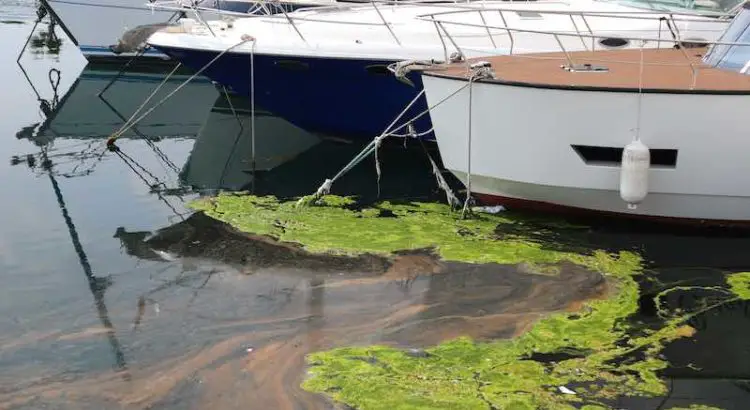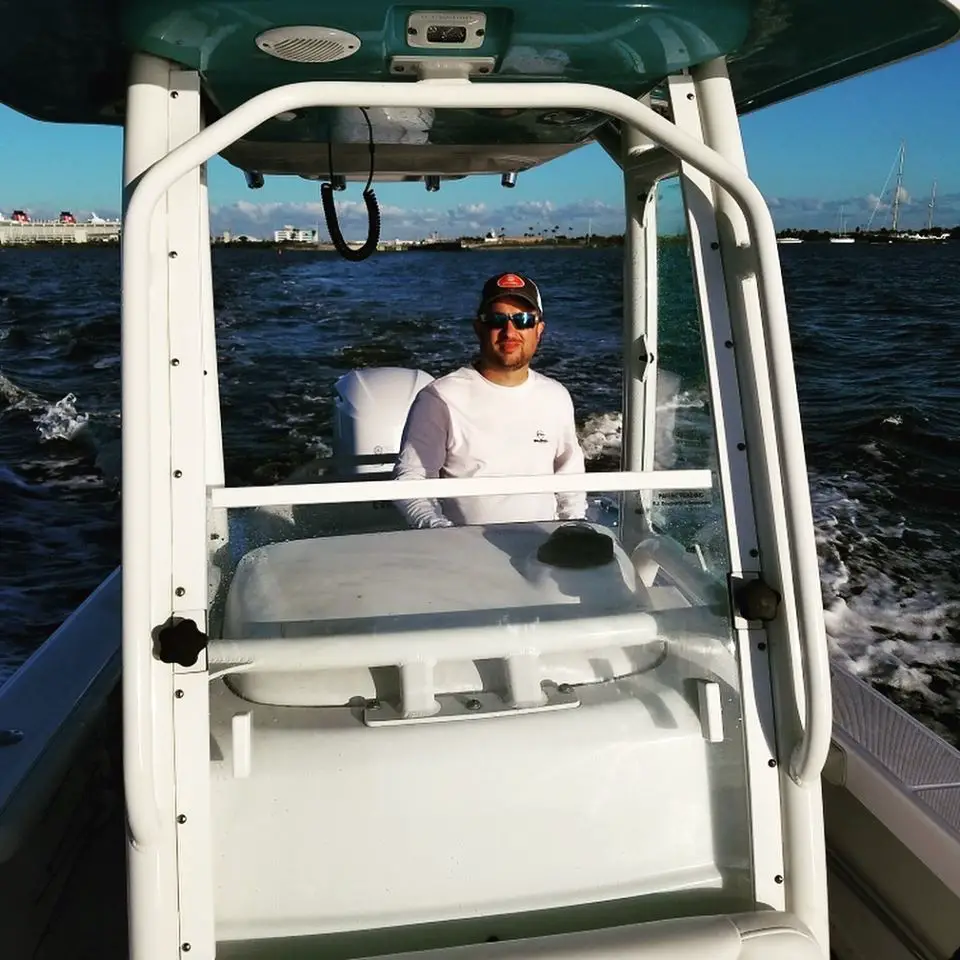This page contains affiliate links. This means that we may get a small commission for recommending products, if you choose to click on something and buy it. This does not cost you anything, but we wanted to be honest and let you know!
(Last Updated On: )You love your boat, and you love nature. You know that your actions in and out of your boat can increase or decrease water pollution and therefore have an impact on the environment.
And yes, you want to accentuate the positive and minimize the negative.
In the United States, over 11.85 million people own a recreational boat, and they love being out on the water in them.
What’s not to love? The smell of the water and the light (sometimes) spray that hits your face is refreshing, the sun and sky beckon, and being involved with the creation and the creatures that live in it seems to restore the soul.
It is both exciting and comforting. It is peaceful and fulfilling, and you want it to last forever.
The good news is that by doing your part, you can help it last forever. Oftentimes it is thought that one action in the vast scheme of things will not make a difference, but that is far from the truth.
One action can harm or heal, hurt, or help, and you have the opportunity to make your action count for the positive.
There are 10 practical ways in which you can reduce water pollution when you are boating that will lessen the impact on the environment you love to be out in.
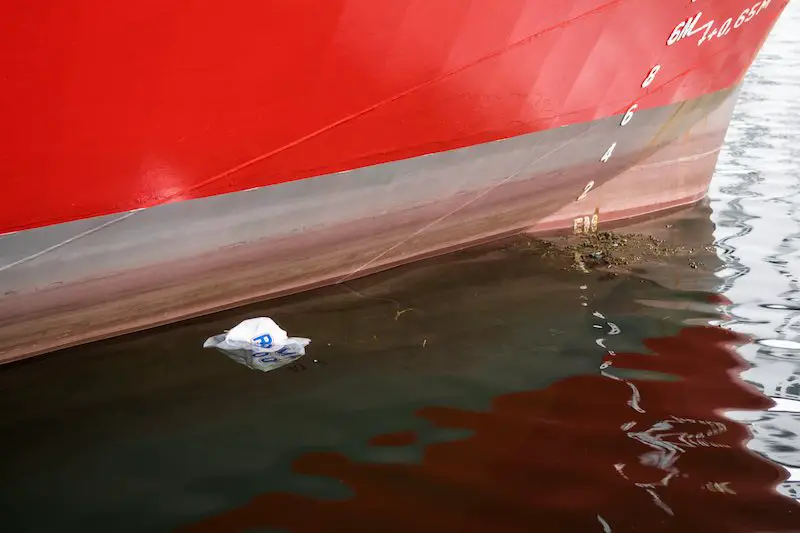
Table of Contents
Here Are the Tips that Will Reduce Water Pollution while Boating:
- Prevent oily discharges from the bilge
- Keep engine well-tuned
- Dispose of hazardous waste properly
- Spill-proof your oil changes by using an oil changer pump you will wrap an absorbent pad around the oil filter to keep the oil from slipping into the bilge
- Fill fuel tanks slowly and catch drips or spills with an absorbent rag or pad
- Don’t top off. Don’t overfill your fuel tank keep it 10% empty to allow fuel to expand while it warms
- Do not use soap to dispose of fuel or oil spills. It is illegal and increases harm to the environment
- Save cleaning and boat maintenance for a boatyard whenever possible
- There are times when you will have to work on the water. Minimize the impact by using eco-friendly detailing products and containing the waste. Use tarps or vacuum sander to collect the debris for disposal
- Reduce toxic discharge from paint by using non-toxic paint
Here are some more tips for preventing water pollution from your boat
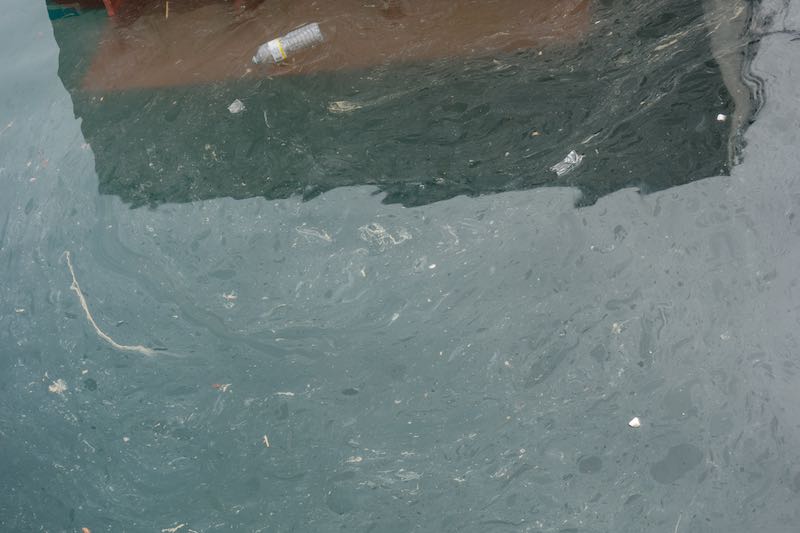
Prevent Oily Discharges From the Bilge
Why is it important to prevent oil from the bilge getting into the water? It is a relatively small amount, and should dissipate, right?
Nope! Just one pint of oil can create an oil slick of about an acre. That is a lot of territories, and it is always moving on the water.
The effect on marine animals is devastating. Fur-bearing mammals, like sea otters, can suffer greatly. Oil destroys the ability of the fur to insulate mammals, and they are then exposed to the harsh elements.
The oil will also destroy the water repellency of a bird’s feathers. When birds can’t repel water and mammals can’t insulate from the cold, they die from hypothermia.
Fish are also negatively impacted by oil in the water. Fish will not grow as big and will develop enlarged livers, fin erosion, and reproduction impairment.
For those who enjoy seafood, the oil in the water can make fish and shellfish unsafe to eat.
Oil can also harm the plants that grow in or near the water. When there is an oil slick, the sunlight cannot get through, and photosynthesis does not take place, and the plants will die.
Some communities depend on nearby water sources for drinking water, and oil in the water will negatively impact the process of getting clean water.
You might think that your small amount of oil would not do much harm, and you might be right, but all of the “small” amounts add up.
Conscientious boaters have developed products to mitigate the damage from spilled oil.
You can purchase absorbent sheets, sometimes referred to as “diapers” for oil drips. The sheets soak up oil but repel water.
They can absorb anywhere from 12 to 20 times their weight in #2 oil.
The sheets can be put under engines and in the bilge. They will remove oil sheen that is on any water in the bilge.
You can also use the absorbent sheets when you are fueling your boat, or if you are filling a portable tank.
Absorbent “socks” or “pillows” are designed to be used in deeper bilge compartments and will soak up any spilled oil.
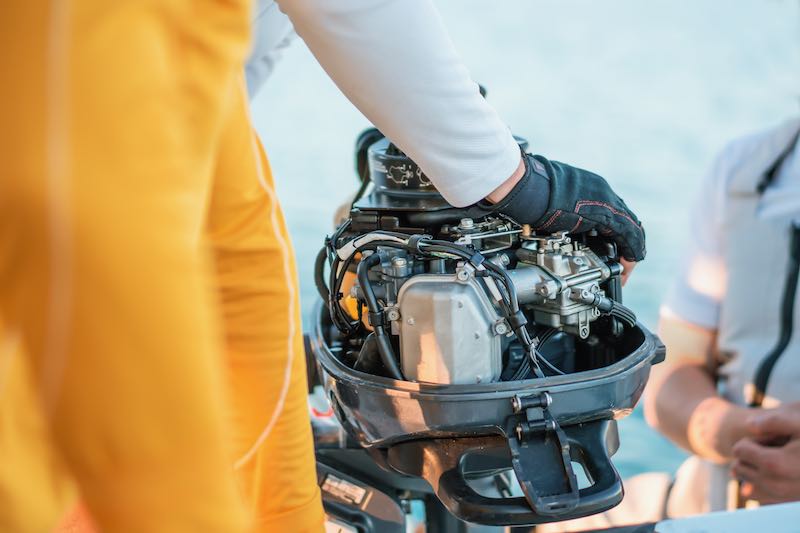
Keep Your Engine Well Tuned
Besides the noise pollution that has a serious effect on marine wildlife, there’s fuel pollution.
When you are operating your boat, there is a certain amount of the fuel that gets discharged from the motor unburned, and it ends up in the water.
If you have a two-stroke motor, consider replacing it with a four-stroke engine.
With a two-stroke engine, 25 – 30 % of the unburned gas and oil mixture will end up in the water.
Compare that with a four-stroke engine that will emit 97% less air and water pollution than the two-stroke motor.
That is a huge difference and one that will make a positive impact in reducing pollution in the water.
By changing your motor to a four-stroke, you have reduced the effect on the pH and dissolved oxygen levels in the water, making it easier on the fish and wildlife.
By keeping your (four-stroke) engine properly tuned, it will run more efficiently and create less pollution.
Also, be aware that your boat and motor is going to have an impact on water pollution by churning up the lake bottom in shallow areas.
When the water is churned, it stirs up lake sediment, re-suspending nutrients (phosphorus) that are on the lake’s bottom.
The nutrients reach the surface of the water where algae are at. Algae get fed by the nutrients and cause an algal bloom.
Although not all algal blooms are harmful, the blooms can use up the oxygen in the water and lead to fish die-offs.
You can avoid contributing to this kind of issue by having a four-stroke motor, keeping it tuned and going slowly through shallow water…a small price to pay, and the fish will thank you for it!
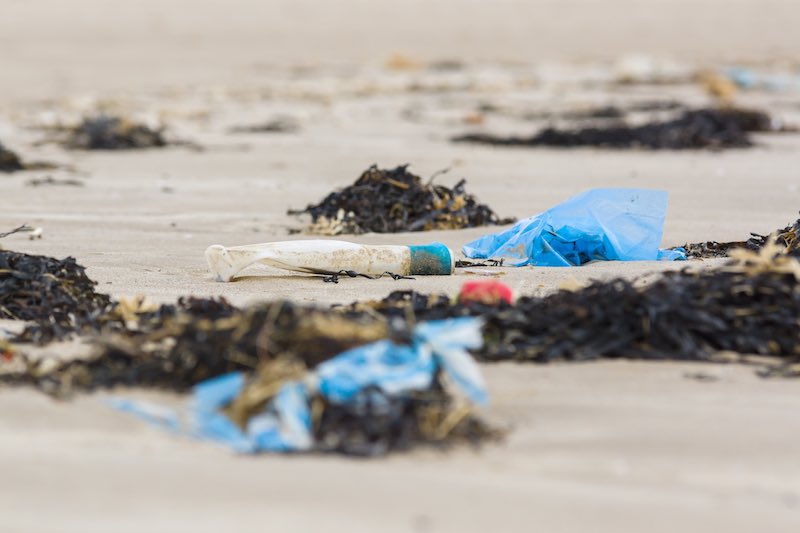
Dispose of Hazardous Waste Properly
Gasoline, diesel, oil, antifreeze, solvents, varnishes, bottom cleaners, and various cleaners can be hazardous and lead to water pollution.
Expired marine flares, fire extinguishers, mercury float switches, and lead-acid batteries are also objects you might have on your boat that will need special disposal.
Remember the absorbent pads we talked about earlier? Those two will need to be considered hazardous waste.
Many of the laws regarding the disposal of these products often address the disposal of large amounts of those items, not a quart or a gallon here or there.
The label might state to “dispose of according to local and state laws.” Good luck with finding those laws to be able to know how to dispose of them!
The proper disposal of these items will depend mainly on the area where you live and what type of program your local authorities have in place.
Marina’s will often have a disposal system in place, but if your local one does not, you can find out at this site: Links to Hazardous Waste Programs and U.S. State Environmental Agencies | US EPA
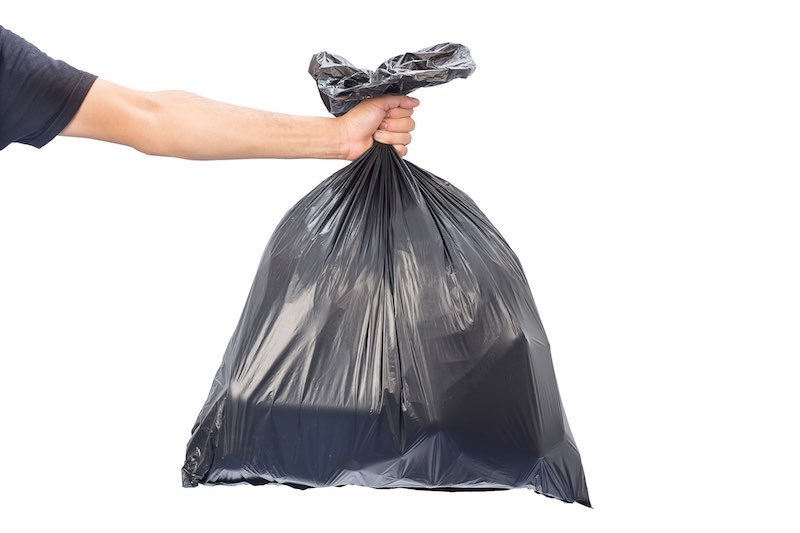
Mitigate The Impact of Water Pollution
Think about these things before you find yourself stuck with all kinds of hard to dispose of waste.
Before you buy a product, read the label. You might not need that strong of a product.
Buy only the amount that you need so that you don’t have a lot of leftovers. If you have to buy in quantity, consider sharing with a fellow boater.
Follow the manufacturer’s directions for use, and if you have to store it on the boat, make sure it is in a place where it will not tip over and spill in rough water.
Ask other boaters about products that they use and about methods of cleaning that might not involve harsh chemicals.
Whenever possible, do maintenance on your boat when it is on land and away from the water’s edge.
If you use your boat seasonally, consider putting fuel booster products in your outboard tank in the fall for storage.
That will avoid stale fuel that you need to dispose of in the spring.
It is helpful to know that under federal law (the Oil Pollution Act of 1990 and the Clean Water Act), is it illegal to discharge any petroleum product in the water.
History of the Clean Water Act | US EPA
If there is a spill, the law requires that if the oil or fuel leaves a sheen on the water, it needs to be reported to the U.S. Coast Guard at 1-800-424-8802.
The last thing you want to do as a boater and a fan of Mother Nature is to cause environmental damage.
The government adds another incentive by making you responsible for any damage caused by your fuel or oil spill.
Don’t try to clean up a spill with detergent as this just causes the petroleum to sink and cause even more harm to the fish and bottom sediments.
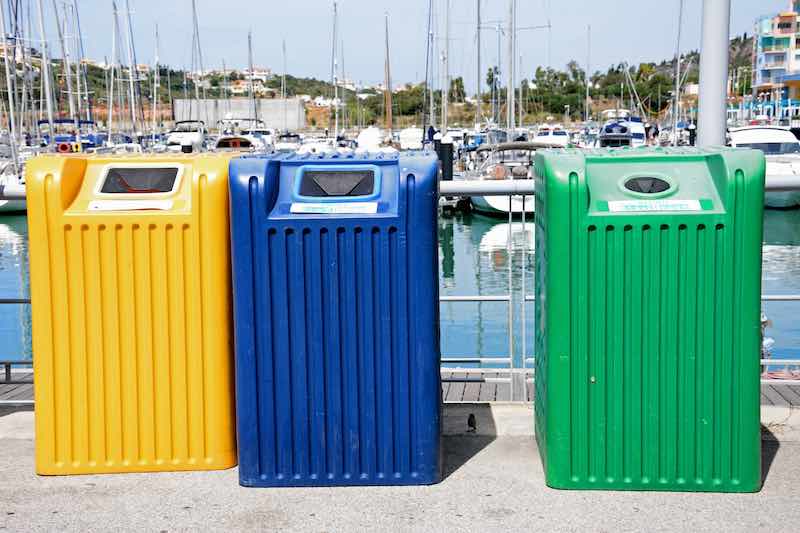
Even If It Is Not Hazardous, Don’t Toss It Overboard
The government of the United States takes the health of the environment just as seriously as you do.
It is illegal under federal law to dispose of ANY garbage from your boat if you are offshore less than three miles.
That includes anywhere in a lake, river, bay, or sound. Even that half-eaten apple will get you in trouble if you toss it overboard.
The penalties are stiff, to give a person reason to think twice or three times before they believe that out of sight is out of mind.
Penalties can be incurred up to $25,000, along with a hefty fine of up to $50,000. A prison sentence of up to 5 years is thrown in for good measure.
Further offshore, you are allowed to legally dispose of some items, but NEVER plastic. Any plastic items must be kept for proper disposal onshore.
If you just remember not to throw waste overboard, it makes the world a better place.
The only exception to the “nothing overboard” rule is fish waste. Those you can put back in the water.
| Where Your Boat Is | Illegal To Dump |
| Lakes, Rivers, Bays, Sounds 0 – 3 Miles From Shore | Plastic, rags, glass, food, metal, crockery, any material that floats |
| 3 – 12 Miles Offshore | Plastic, rags, glass, food, metal, crockery, any material that floats |
| 12 – 25 Miles Offshore | Plastic, materials that float |
| 25 Miles or More | Plastic |
| Plastic includes garbage bags, snack bags, plastic bottles, fishing line, and cigarette buttsHelp Keep Plastic Out Of The Environment |
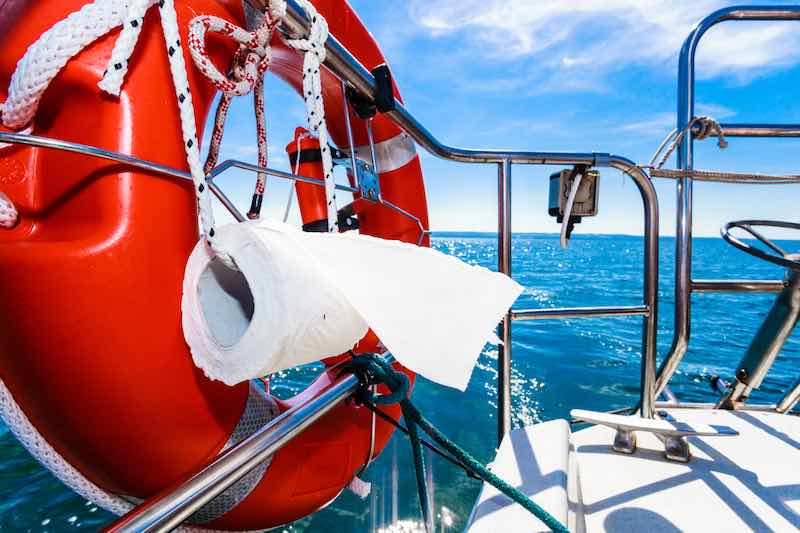
The Call Of Nature
It is inevitable, but when you are out in nature, you will hear the call of nature. No doubt about it. So prepare beforehand.
There are a few options for onboard sewage:
A porta-potty
A composting head
An installed toilet with a marine sanitation device
Most of us are not going to have the installed sanitation device. Some of us are going to have a five-gallon bucket. (I saw one that had a toilet set fixed to the top!)
Back to the law, it is illegal to dump untreated sewage on inland waters. It is also not nice!
Use any onshore facility before heading out on the water. Whatever type of container you use, whether it be a porta-potty or a bucket, the sad truth is that you will have to dispose of the waste once onshore properly.
If you are docking at the marina, they will have a pump station or disposal facility.
If you are docking on your own, you will need to haul it home to dispose of it in your toilet.
Not fun, and not pleasant, but it is a necessity. You wouldn’t want that where you swim, and neither do the fish.
Some Things Last Forever
You would like your time on the boat to last forever; it is always a bit of a bummer to turn toward shore when you’ve been able to call the day your own while on the water.
According to the U.S. Coast Guard Auxiliary some things do, indeed, last forever. Worn out fishing gear can last centuries in the water.
Monofilament lines can last 600 years, and plastic bags can be around for centuries.
Cigarette butts can last from two to ten years, and plastic bottles will still be going strong 450 years after being deposited in the water.
Aluminum cans will hold up for 200 to 500 years, and that styrofoam buoy will still be bobbing 80 years from its maiden voyage.
Mylar balloons are an additional issue, although I am not sure why you would have balloons on a boat.
They can last for centuries, and the reflective surface on the balloon often mimics a distress signal.
I wish that my paycheck lasted as long as a mylar balloon! Here are just a few ideas to consider so as not to add to the problem
Don’t throw it overboard!
Secure it, tie it down, stow it
Reuse and recycle
Keep an eye on your fishing gear, so it does not end up at the bottom of the lake
Buy recycled items that have little packaging
Cut the rings in plastic six-pack holders (birds and marine animals can get them stuck around their necks)
Participate in coastal cleanups. Set a good example.
The Environmental Protecting Agency (EPA) has information about Protecting Our Oceans from Pollution | Ocean Dumping Management
Fill Fuel Tanks Slowly and Catch Drips or Spills
It may seem straightforward or even intuitive, but there is a right way to fill your fuel tank.
It is crucial to prevent any fires onboard. That would put a damper on the day in a hurry!
Gasoline vapors are heavier than the air is. They also spread rapidly and will get into an enclosed space, like the bilge.
When fueling your boat, you should:
- Secure your boat to the dock
- Turn the engine off
- Now is not the time to light up
- Don’t use any electrical switches
- If you have any ports, hatches or doors, keep them closed
- Have your passengers onshore, not on the boat
- Make sure the fuel is the proper grade (really! I have messed this up before)
- Hold the hose nozzle firmly against the fill pipe opening
- Do not overfill! Leave about 10% for expansion
- Use absorbent rags on any spillage and dispose of properly
- Open ports, hatches, and doors to ventilate
- Start the engine
- Invite passenger onboard
- Untie from the dock and have a fantastic time on the water.
To get better fuel usage:
- Keep your motor tuned
- Check your propeller for damage that might cause drag
- Use the correct oil mix
- Keep your hull clean as it reduces friction
- Before you leave the dock, drain all water
- Distribute weight evenly onboard without overload
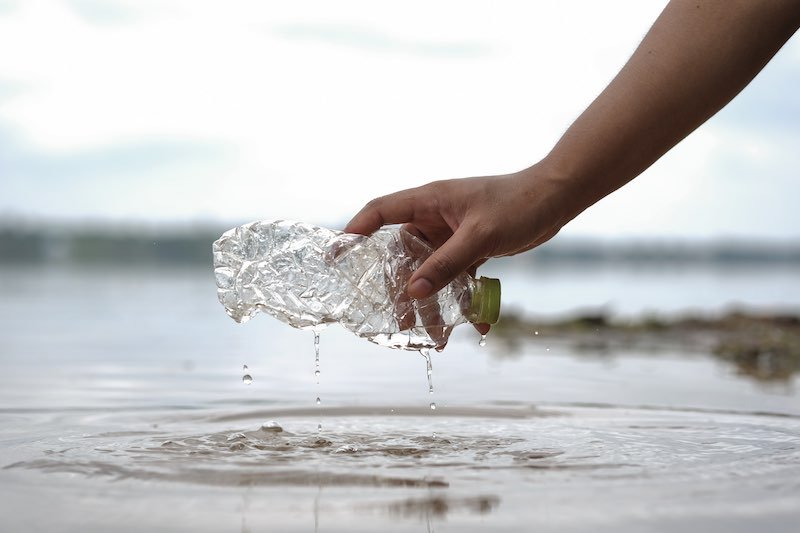
Yes, You Can Reduce Water Pollution!
It is a big world with vast waterways. It can seem like our individual effort is futile in such an immense environment.
However, think about it; the environment has been negatively impacted as a result of individual decisions.
So one individual’s choice can also make a difference for the positive.
The antidote below has always been one of my favorites, and I think about it whenever I wonder if I should even bother, or if my actions matter.
Once upon a time, there was a man who used to go down to the ocean. He had a habit of walking on the beach every morning before work.
Early one morning, he was walking along the shore after a big storm had passed and found the vast beach littered with starfish as far as the eye could see, stretching in both directions.
Off in the distance, the man noticed a small boy approaching.
As the boy walked, he paused every so often, and as he grew closer, the man could see that he was occasionally bending down to pick up an object and throw it into the sea.
The boy came closer still, and the man called out, “Good morning! May I ask what it is that you are doing?”
The young boy paused, looked up, and replied, “Throwing starfish into the ocean.
The tide has washed them up onto the beach, and they can’t return to the sea by themselves,” the boy replied.
“When the sun gets high, they will die, unless I throw them back into the water.”
The man replied, “But there must be tens of thousands of starfish on this beach. I’m afraid you won’t be able to make much of a difference.”
The boy bent down, picked up yet another starfish, and threw it as far as he could into the ocean. Then he turned, smiled, and said, “I made a difference to that one!”
